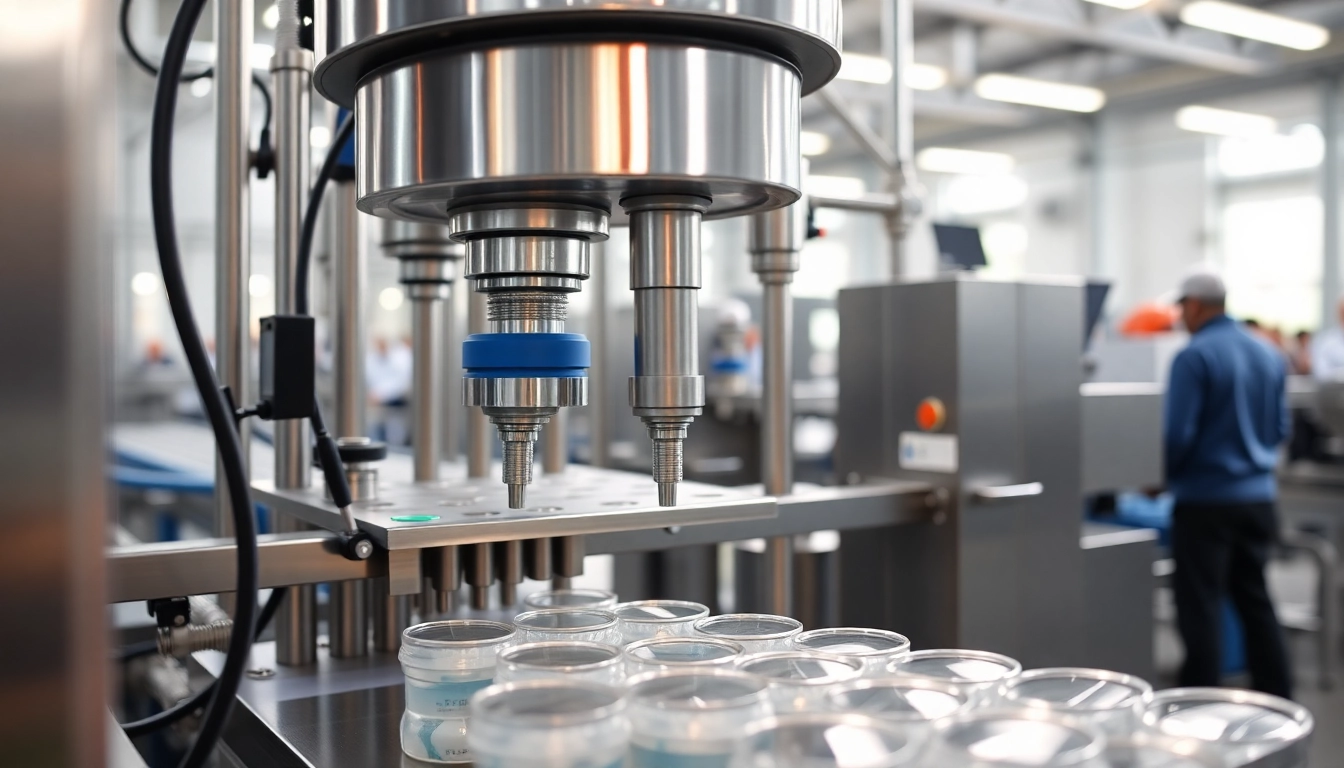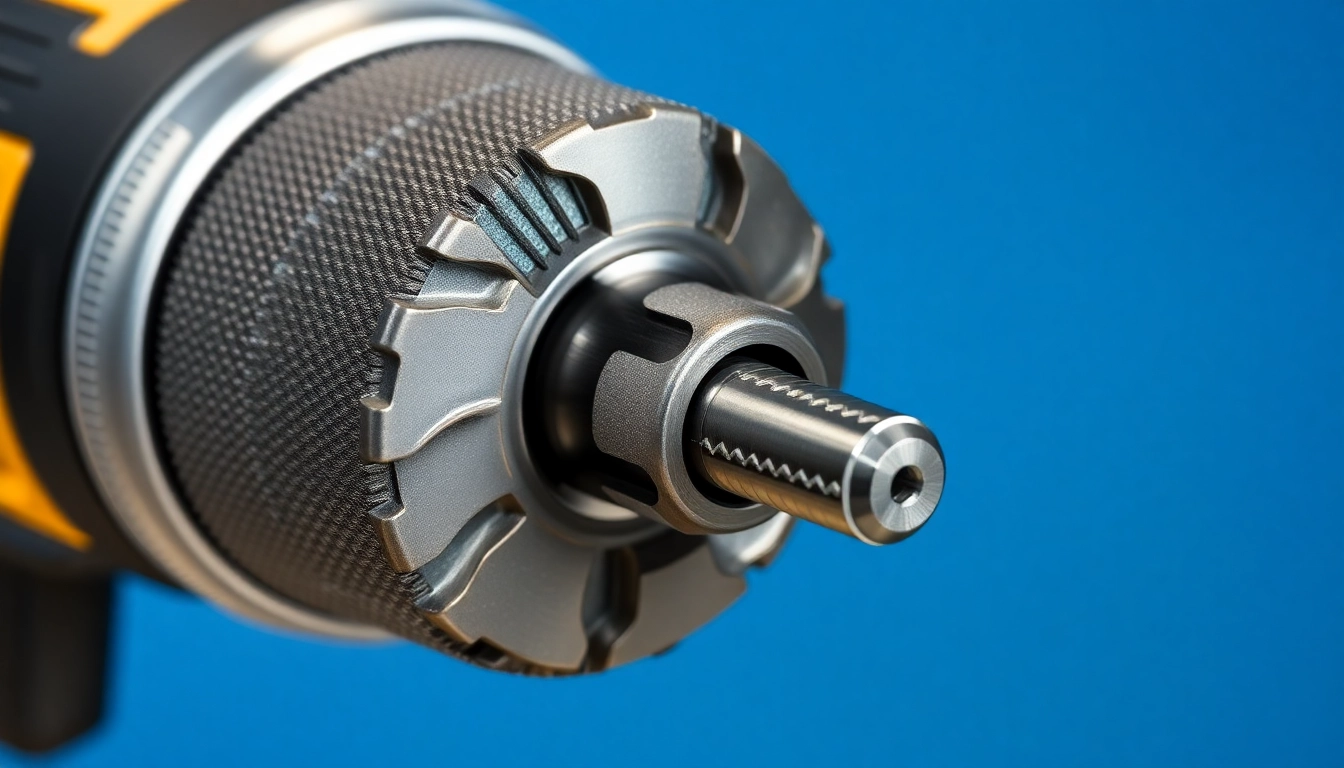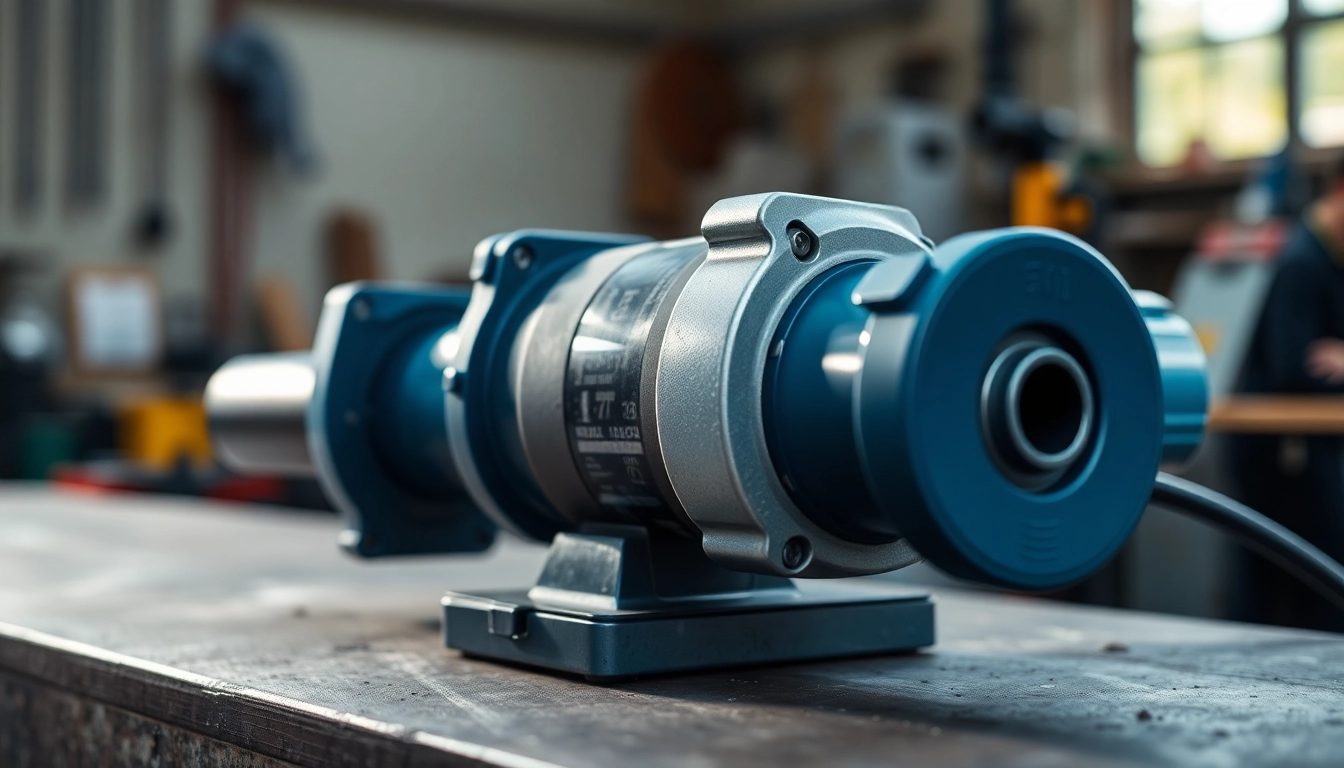Understanding Filling Machines
What is a Filling Machine?
A filling machine is an essential piece of equipment used in a variety of industries, primarily for packaging liquids, powders, and other granular materials into containers or packages. These machines automate the process of dispensing precise amounts of product into various types of containers such as bottles, jars, or pouches, ensuring accuracy and efficiency in the packaging process. Typically, filling machines operate through a series of mechanisms that allow them to fill multiple containers simultaneously, thereby enhancing production speed and reducing labor costs.
Types of Filling Machines Available
There are several types of filling machines available in the market today, each tailored to particular types of products and packaging needs. The most common types include:
- Gravity Filling Machines: These machines use gravity to dispense liquids into containers. They are often used for thinner liquids, such as water or juices.
- Piston Filling Machines: Ideal for thicker liquids and pastes, these machines utilize a piston mechanism to measure and fill containers accurately.
- Pump Filling Machines: These machines employ a pump to transport the liquid from the reservoir into the container, suitable for both thin and thick materials.
- Overflow Filling Machines: Designed for bottles with neck restrictions, these machines fill containers to a predetermined level, ensuring minimal product waste.
- Vacuum Filling Machines: Utilizing a vacuum to fill containers, these machines are particularly effective for products sensitive to air exposure, such as certain food items and cosmetics.
Applications Across Industries
Filling machines are invaluable in numerous industries including food and beverage, pharmaceuticals, cosmetics, and chemicals. For instance, in the food and beverage sector, filling machines ensure that liquids, such as juices or sauces, are packaged efficiently while maintaining hygiene standards. In pharmaceuticals, these machines must comply with stringent safety regulations, ensuring dosages of liquid medicines are precise and free from contamination. In cosmetics, filling machines are used to handle a variety of viscous products, ensuring that creams, lotions, and oils are accurately filled in their packaging. This versatility highlights the importance of selecting the right filling machine supplier to meet specific needs.
Why Choose Our Filling Machines?
Quality and Reliability Standards
Choosing a filling machine supplier means selecting a partner committed to quality and reliability. Our machines undergo rigorous testing to meet international standards, ensuring they function optimally under various operational conditions. For instance, our machines are designed with robust materials, incorporating the latest technology that enhances durability and minimizes operational downtime. This focus on quality ensures that your filling machines can withstand the demands of high-volume production without compromising performance.
Custom Solutions for Your Needs
Every business has unique needs when it comes to production. As a leading Filling Machine Supplier, we provide custom solutions tailored to your specific requirements. Whether you need a machine designed for a particular product viscosity level or one that fits a unique container shape, our engineers work closely with you to develop a machine that meets your exact specifications. This level of customization allows for greater efficiency and effectiveness in your production line.
Cost-Effectiveness and ROI Considerations
Investing in the right filling machinery can yield significant returns on investment (ROI). Not only do automated filling machines increase production speed, but they also reduce labor costs and minimize the risk of human error. As product consistency improves, customer satisfaction increases, further driving sales. Additionally, the longevity and durability of our machines mean lower maintenance costs over time, making them a smart financial decision for any business looking to grow.
Features to Consider When Buying a Filling Machine
Automation Levels: Manual vs. Automatic
One of the first factors to consider is the level of automation you need. Manual filling machines are more affordable and suitable for businesses with low-volume production needs. However, they require more labor and can be subject to inconsistencies in filling. Automatic machines, on the other hand, offer higher efficiency, are capable of handling large volumes, and minimize human involvement, leading to better precision. Understanding your production needs will guide your choice between these two options and help determine the best machinery for your requirements.
Container Types and Sizes
Filling machines must be compatible with the specific containers you plan to use. This includes considering container shape, size, and material. Some machines are designed for specific types of bottles (like glass or plastic) or for certain shapes (like square or round). You’ll also need to consider the machine’s ability to adjust and handle different sizes of containers if your production line requires flexibility.
Compliance and Safety Features
In many industries, compliance with safety and health regulations is paramount. Make sure that the filling machines you consider comply with industry standards and regulations. This is especially true in the food and pharmaceutical sectors, where machinery must adhere to strict hygiene and safety practices. Features such as easy sanitization, material safety, and built-in safety systems can be critical in maintaining compliance and protecting both your workers and consumers.
Comparing Leading Filling Machine Suppliers
Industry Success Stories
When evaluating filling machine suppliers, it’s advantageous to look at their previous success stories and case studies. For instance, many suppliers share case studies showcasing how their machines helped businesses improve efficiency, reduce operational costs, and achieve significant production milestones. These stories can offer insight into the supplier’s capabilities and the potential impact of their machines on your operations.
Competitive Pricing Analysis
Cost is an essential consideration when choosing a filling machine. Analyze the pricing models of various suppliers, looking beyond just the initial investment. Evaluate the total cost of ownership, which includes maintenance, parts replacement, and potential upgrades. Understand the warranty and support options, as good after-sales service contributes significantly to the overall cost-effectiveness of your purchase.
Customer Support and After-Sales Services
Robust customer support is vital in ensuring that your filling machine operates smoothly and efficiently. Assess the level of technical support and after-sales services provided by potential suppliers. A good supplier will offer not only immediate assistance when you face issues but also training for your team and a readily available supply of spare parts. This ongoing support is crucial for maintaining optimal machine performance and minimizing downtime.
Getting Started with Your Filling Machine Purchase
Evaluating Your Business Needs
Before making a purchase, conduct a thorough evaluation of your business needs. Consider factors such as production volume, product types, packaging styles, and budget constraints. Engaging multiple stakeholders in this process, including production managers and financial officers, can provide a well-rounded understanding of your requirements, ensuring that your investment aligns with your overall business goals.
Consultation and Quotation Process
Once you have a clear understanding of your needs, reach out to multiple suppliers for consultations and quotations. A reputable supplier will work with you to understand your specifications and provide detailed proposals outlining product options, pricing, and expected lead times. Take the time to ask questions during consultations to ensure you fully comprehend the offerings and can make an informed decision.
Installation and Training Offers
The installation and training processes are critical steps in ensuring your filling machines are set up and utilized correctly. Choose a supplier that offers installation services, as well as comprehensive training for your staff. Proper training can prevent operational mishaps and ensure your team knows how to operate and maintain the machines effectively. Look for suppliers that provide ongoing training resources and support to adapt to any future needs.
Conclusion
Choosing the right filling machine supplier is a significant decision that will impact your operational efficiency, product consistency, and overall business growth. By understanding the types of filling machines available, considering your unique needs, and evaluating potential suppliers based on quality, custom solutions, and support, you can make a well-informed choice. Our goal as a leading filling machine supplier is to partner with you in enhancing your production capabilities, ensuring you can meet your company’s objectives with precision and efficiency.



